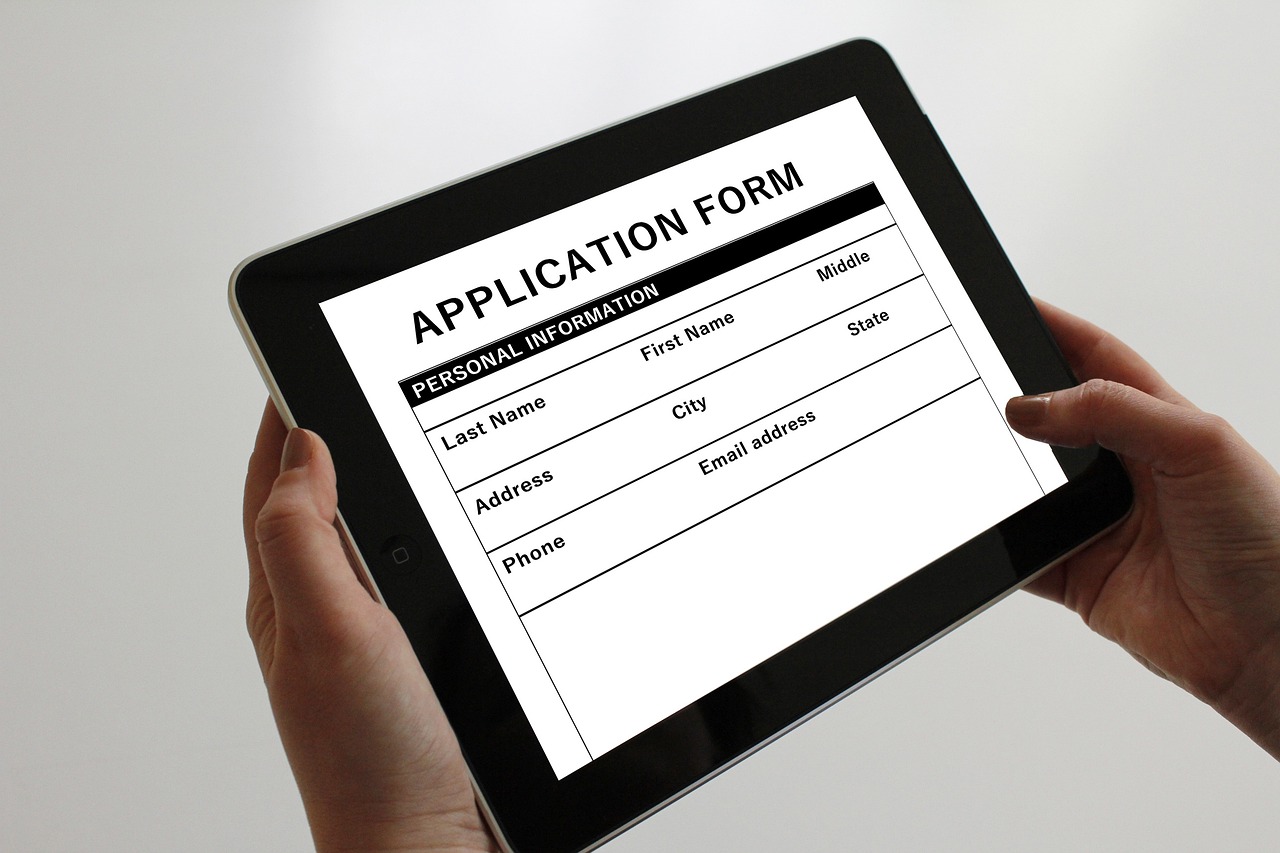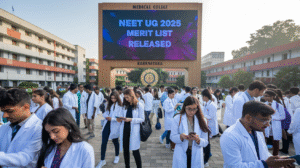Are you ready to embark on your journey to become a doctor? 🩺 The path to an MBBS degree is exciting, but it can also be overwhelming. With important dates and deadlines approaching for MBBS Direct Admission 2025, it’s crucial to stay informed and prepared.
We understand the challenges you face as an aspiring medical student. The competition is fierce, with over 24 million applicants for NEET UG 2025 alone! 😮 But don’t worry – we’re here to guide you through the maze of eligibility criteria, application processes, and crucial deadlines that stand between you and your dream of wearing that white coat.
In this comprehensive guide, we’ll walk you through everything you need to know about MBBS Direct Admission 2025. From the all-important NEET examination to choosing the right medical college, we’ve got you covered. So, let’s dive in and demystify the path to your medical career!
NEET Examination: The Gateway to MBBS Admission

A. Importance of NEET for medical college admissions
The National Eligibility cum Entrance Test (NEET) has become the cornerstone for medical college admissions in India. We understand its significance as the sole gateway for aspiring medical students. NEET serves as a uniform entrance test for various medical disciplines, including:
- Bachelor of Medicine and Bachelor of Surgery (MBBS)
- Bachelor of Dental Surgery (BDS)
- Bachelor of Ayurvedic Medicine and Surgery (BAMS)
- Bachelor of Unani Medicine and Surgery (BUMS)
- Bachelor of Siddha Medicine and Surgery (BSMS)
- Bachelor of Homeopathic Medicine and Surgery (BHMS)
This standardized assessment, administered by the National Testing Agency (NTA), ensures a fair and transparent process for admissions into premier medical institutions across India.
B. Record-breaking registration numbers for NEET 2025
While we don’t have specific data on NEET 2025 registrations, we anticipate a continued upward trend in the number of applicants. This reflects the growing interest in medical education and the competitive nature of securing a spot in esteemed medical colleges.
C. Key changes in NEET 2025 format and policies
For NEET 2025, we’ve observed some significant updates:
- The elimination of the upper age limit
- Eligibility for candidates born on or before December 31, 2008
- Conduct of the exam in multiple languages to enhance accessibility
D. NEET syllabus and preparation strategies
The NEET syllabus covers Physics, Chemistry, and Biology (or Biotechnology). We recommend focusing on these key subjects during preparation. Here’s a breakdown of the eligibility criteria and preparation focus:
| Aspect | Details |
|---|---|
| Minimum Age | 17 years by December 31, 2025 |
| Academic Requirement | Completed or appearing for Class 12 |
| Mandatory Subjects | Physics, Chemistry, Biology/Biotechnology, English |
| Minimum Marks | General: 50%, SC/ST/OBC: 40%, PwD: 45% |
We advise candidates to ensure all necessary documentation is prepared, including birth certificates, class mark sheets, and any applicable certificates for category or disability claims.
Now that we have covered the essential aspects of NEET, the gateway to MBBS admission, we’ll move on to discuss the specific eligibility criteria for MBBS admission in the next section.
Eligibility Criteria for MBBS Admission

Now that we’ve explored the NEET examination as the gateway to MBBS admission, let’s delve into the specific eligibility criteria for MBBS admission in 2025. Understanding these requirements is crucial for aspiring medical students to ensure they meet all necessary qualifications.
A. Age requirements and academic qualifications
We want to emphasize that candidates must be at least 17 years old by December 31, 2025, to be eligible for MBBS admission. There’s no specified upper age limit, which opens opportunities for a wide range of applicants.
As for academic qualifications, we require candidates to have completed their 10+2 education with a specific subject combination:
- Physics
- Chemistry
- Biology/Biotechnology
- English
The minimum aggregate scores required are:
| Category | Minimum Aggregate Score |
|---|---|
| General | 50% |
| OBC/SC/ST | 40% |
| PwD | 45% |
B. Minimum NEET score and percentile cutoffs
We’ve set specific NEET cutoff scores to ensure candidates meet the required standards:
- General category: 50th percentile
- Reserved categories: 40th percentile
It’s important to note that these are minimum requirements, and achieving higher scores significantly improves chances of admission, especially for government medical colleges.
C. Special considerations for reserved categories
We’ve implemented special considerations for reserved categories to ensure inclusive access to medical education:
- Lower minimum aggregate scores in 10+2 (40% for OBC/SC/ST)
- Reduced NEET percentile cutoff (40th percentile)
- Reserved seats during counseling process
With these eligibility criteria in mind, we’ll next explore the application process and important dates for MBBS admission in 2025. Understanding these requirements is crucial as we move forward in the admission journey, ensuring that all aspiring medical students are well-prepared for the next steps.
Application Process and Important Dates

Now that we’ve covered the eligibility criteria for MBBS admission, let’s delve into the application process and important dates for MBBS direct admission in 2025. We’ll guide you through the crucial timelines to ensure you don’t miss any deadlines.
A. Online application submission period
We recommend starting your application process as early as possible. For MBBS direct admission through management and institutional quotas, the online application submission typically opens in May 2025. Here’s what you need to know:
- Research and shortlist colleges offering direct admission
- Prepare required documents, including Class 12 marks sheet
- Submit applications to multiple colleges to increase your chances
| Application Step | Recommended Timeline |
|---|---|
| Research colleges | January – April 2025 |
| Document preparation | March – April 2025 |
| Online submission | May – June 2025 |
B. Admit card download timeline
After submitting your application, the next crucial step is downloading your admit card. For direct admissions, this process may vary depending on the college:
- Check college websites regularly for admit card release dates
- Download admit cards typically 1-2 weeks before entrance exams
- Ensure all details on the admit card are correct
C. Examination date and result announcement
While NEET is the primary entrance exam for MBBS, direct admission processes may involve college-specific management quota entrance exams. Here’s what to expect:
- College-specific exams usually held in June-July 2025
- Results typically announced within 2-3 weeks of the exam
- Counseling and seat allotment follow shortly after results
We advise keeping a close eye on individual college websites and official notifications for the most accurate and up-to-date information on examination dates and result announcements.
With this timeline in mind, we’ll next explore the MBBS Admission Counseling Process, which is a crucial step in securing your seat in your chosen medical college.
MBBS Admission Counseling Process
Now that we’ve covered the application process and important dates, let’s delve into the crucial MBBS admission counseling process. This stage is where your NEET scores and preferences come into play, determining your future medical college.
Evolution from offline to online counseling
We’ve witnessed a significant shift in the counseling process over the years. The Medical Counselling Committee (MCC) has moved from traditional offline methods to a more efficient online system. This transition has made the process more accessible and transparent for aspiring medical students across India.
Multiple rounds of counseling explained
The counseling process typically involves several rounds to ensure all seats are filled. Here’s a breakdown of the process:
- Online registration
- Selection of college preferences based on NEET scores
- Seat allotment according to merit and availability
- Document verification
- Final reporting to the allotted college
Each round follows this pattern, with subsequent rounds addressing unfilled seats from previous rounds.
Merit-based seat allocation system
We prioritize fairness in our seat allocation system, which is strictly merit-based. Here’s how it works:
| Step | Description |
|---|---|
| 1 | Candidates are ranked based on NEET scores |
| 2 | Higher-ranked candidates get priority in seat selection |
| 3 | Seats are allocated based on availability and candidate preferences |
| 4 | Reserved category seats are filled according to government policies |
This systematic approach ensures transparency and equity in the allocation process, giving every qualified candidate a fair chance at securing their desired MBBS seat.
As we move forward, it’s important to consider the financial aspects of pursuing an MBBS degree. In the next section, we’ll explore the cost considerations for MBBS programs, helping you prepare for this significant investment in your medical career.
Cost Considerations for MBBS Programs

Now that we’ve covered the MBBS admission counseling process, let’s delve into an equally important aspect of pursuing an MBBS degree: the financial considerations. Understanding the costs involved will help you make an informed decision about your medical education journey.
A. Tuition fee ranges for government and private colleges
We’ve observed a significant disparity in tuition fees between government and private medical colleges in India. Here’s a breakdown of the costs:
| College Type | Annual Tuition Fee Range | Total Course Cost (5.5 years) |
|---|---|---|
| Government | ₹6,000 – ₹50,000 | ₹30,000 – ₹2.75 lakh |
| Private | ₹3 lakh – ₹25 lakh | ₹30 lakh – ₹1 crore+ |
It’s important to note that private colleges with management or NRI quotas can charge even higher fees, sometimes exceeding ₹20 lakh per year.
B. Additional expenses and financial planning
When planning for your MBBS education, we must consider more than just tuition fees. Here are some additional factors to keep in mind:
- Living expenses
- Books and study materials
- Medical equipment
- Miscellaneous fees
To manage these costs, we recommend exploring various financial aid options:
- Scholarships from government and non-governmental organizations
- Education loans
- Part-time work opportunities (where permitted)
We’ve found that applying for multiple scholarships can significantly reduce your financial burden. It’s also worth noting that some states offer more affordable options:
- Delhi and West Bengal: Lower fees for government colleges
- Karnataka and Maharashtra: Higher fees for private colleges
When choosing between government and private institutions, we must weigh our NEET performance, financial capabilities, and personal motivations. Securing a seat in a government college through NEET is undoubtedly the most cost-effective option. However, if your NEET scores don’t meet the cutoff for government colleges, private institutions remain a viable alternative, provided you have the necessary financial resources.
With these cost considerations in mind, we’ll next explore how to choose the right medical college for your MBBS journey. This decision involves more than just finances – it’s about finding the institution that aligns with your career goals and provides the best educational experience.
Choosing the Right Medical College

Now that we’ve covered the cost considerations for MBBS programs, let’s delve into another crucial aspect of your medical education journey: choosing the right medical college.
A. Factors to consider in college selection
When selecting a medical college, we need to weigh several important factors:
- Reputation and ranking
- Tuition and miscellaneous fees
- Age of the college
- Number of MBBS and PG seats
- Patient flow in associated hospitals
- Hospital infrastructure
- Compulsory rural service requirements
- Internal quotas for postgraduate studies
- Internship stipends
- College location
We recommend using the MBBSCouncil Android App, which provides comprehensive details on these factors to help you effectively rank colleges during the counseling process.
B. Importance of college affiliations and infrastructure
College affiliations and infrastructure play a vital role in shaping your medical education experience. We’ve compiled a table showcasing some of India’s top medical colleges known for their excellent infrastructure and affiliations:
| College Name | Location | Notable Features |
|---|---|---|
| AIIMS | New Delhi | Advanced facilities, comprehensive clinical training |
| PGIMER | Chandigarh | Strong focus on research and patient care |
| KGMU | Lucknow | Long-standing history, robust educational standards |
| CMC | Vellore | Premier private institution, holistic care approach |
| MAMC | New Delhi | Exceptional clinical training |
| LHMC | New Delhi | Outstanding educational resources |
C. Patient exposure and faculty qualifications
We cannot stress enough the importance of patient exposure and faculty qualifications in your medical education. Here’s what to look for:
- Patient flow: A higher patient flow indicates better clinical exposure, which is essential for your training.
- Number of hospital beds: Ideally, look for colleges with over 500 beds for a quality experience.
- Faculty qualifications: Seek institutions with highly qualified faculty members who can provide mentorship and guide your clinical practice.
Remember, the number of postgraduate courses available can enhance your learning experience by providing opportunities for mentorship and advanced clinical practice.
With this comprehensive guide to choosing the right medical college, we’re now prepared to explore alternative pathways in healthcare education, which can provide additional options for those interested in the medical field.
Alternative Pathways in Healthcare Education

Now that we’ve explored the crucial factors in choosing the right medical college, let’s shift our focus to alternative pathways in healthcare education. While MBBS remains a popular choice, there are numerous other rewarding opportunities in the medical field for those who may not qualify for NEET or prefer different healthcare careers.
Non-NEET healthcare courses
We understand that not all aspiring healthcare professionals may want to pursue MBBS or BDS. Fortunately, there are several excellent alternatives that don’t require NEET qualification:
- Bachelor of Science (B.Sc) in:
- Nursing
- Biotechnology
- Psychology
- Medical Laboratory Technology
- Pharmacy
- Physiotherapy
- Occupational Therapy
- Radiology & Imaging Technology
- Nutrition & Dietetics
- Forensic Science
These courses offer stability, job security, and global recognition. Let’s take a closer look at some of these options:
| Course | Duration | Eligibility | Career Options | Potential Salary Range |
|---|---|---|---|---|
| B.Sc Nursing | 4 years | 10+2 with PCB | Registered Nurse, Nurse Practitioner | ₹2.5 – 8 LPA |
| B.Sc Biotechnology | 3 years | 10+2 with PCB | Research Scientist, Biotech Analyst | ₹3 – 10 LPA |
| B.Sc Psychology | 3 years | 10+2 (any stream) | Counselor, HR Professional | ₹3 – 7 LPA |
| B.Pharm | 4 years | 10+2 with PCB/PCM | Pharmacist, Drug Safety Associate | ₹2.5 – 8 LPA |
Options for those not qualifying NEET
We recognize that not everyone may succeed in NEET, but that doesn’t mean the end of their healthcare career aspirations. Here are some alternatives:
- Pursue non-NEET medical courses mentioned above
- Explore international medical education options
- Consider allied health science programs
- Look into online healthcare courses and certifications
For those still interested in MBBS but unable to qualify NEET, we suggest exploring platforms like Physics Wallah. They offer comprehensive preparation materials for various competitive exams, including NEET. Their resources include:
- Intensive courses led by qualified faculty
- Study materials and NCERT solutions
- Practice questions across multiple subjects
We believe these alternatives provide excellent opportunities for students to build successful careers in healthcare based on their interests and strengths. Remember, a rewarding medical career isn’t limited to NEET pathways – there are numerous options available for passionate individuals like you.

Throughout this blog post, we’ve explored the crucial aspects of MBBS direct admission for 2025. We’ve covered everything from the NEET examination, which serves as the gateway to medical education, to the intricacies of the application process and counseling. We’ve also delved into the importance of understanding eligibility criteria, cost considerations, and the factors to consider when choosing the right medical college.
As aspiring medical professionals, it’s essential to stay informed about these important dates and deadlines. We encourage you to carefully review the NEET 2025 changes, including the return to the pre-COVID exam format and the introduction of APAAR ID for easier applications. Remember, thorough preparation and adherence to guidelines are key to securing your place in a reputable medical institution. Whether you’re aiming for government colleges like AIIMS or considering private institutions, understanding the competitive nature of MBBS admissions will help you navigate this challenging yet rewarding journey towards a career in medicine.
💬 Instant WhatsApp Support
Get real-time assistance for urgent queries about applications & deadlines
Average response time: 15 minutes
📞 One-on-One Consultation
Speak directly with our senior admission counselors for comprehensive guidance
Available Mon-Sat: 9 AM - 7 PM IST
Sunday: 10 AM - 4 PM IST
📩 Detailed Inquiry Form
Share your details and our experts will craft a personalized admission strategy






